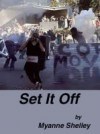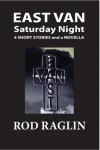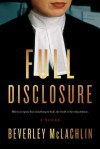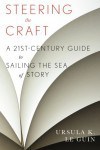Rod Raglin's Blog, page 28
October 5, 2018
Comparing novels written four years apart shows author’s lack of improvement
Review: 




JJ Carlisle is the worst kind of spoiled; a grown adult with a sense of entitlement and a family that indulges it. Surprisingly, he’s done well or did well. Computer savvy, he hooked up with a tech startup and scored big only to lose it all in the economic crash.
Of course, the downturn in the economy is not his fault; neither is the fact that he never saved a penny of the hundreds of thousands of dollars he made. Now he’s broke, angry and looking for someone to blame.
Participation in Occupy Oakland is the perfect outlet, and during a demonstration, he’s arrested for assault.
Set it Off by Myanne Shelley sounds like it could be an interesting story with contemporary issues, action and politics. It isn’t and here’s why.
Rather than start the story with an action-filled inciting incident – the demonstration and the arrest, Shelley chooses to begin with JJ being bailed out by his sister, Jackie, and step-sister, Karen.
The next few chapters flash back to the three character’s childhoods. It’s backstory and not very interesting at that, though there’s a bit of character development and the reader gets a sense of the relationship between the three.
Then we’re back to the present, and everyone is gathering for their father’s eightieth birthday. There’s lots of reflection but no drama; not even a family feud.
Occasionally, JJ meets up with his pals from the Occupy Oakland movement, but they’re hardly radical and more philosophical than violent.
I kept anticipating something would happen, but nothing does. The story just peters out.
Shelley writes well. Her dialogue is authentic, and her characters are well-drawn, the problem is they’re unsympathetic. Besides being boringly normal, they’re timid and whiney.
But what makes Set if Off so lacklustre a read is the fundamentals of storytelling are missing: Goal, Motivation and Conflict.
The goals of the three main characters are so vague as to be non-existent. Without goals there’s no conflict. How can there be conflict when everyone is more or less satisfied with their situation, or at least too unmotivated to do anything about it?
Add to that Shelley’s passive writing style – the author prefers to have the characters explain what happens than have them actively engage in the events.
These deficiencies represent lack of craft – beginner’s mistakes. They would have been easily identified by peer writing groups or instructors in writing courses. Reading books on how to write fiction can also be helpful though nothing takes the place of an honest, constructive critique by a writing professional.
To date, Shelley has published six books (all free except one at http://www.smashwords.com). Set if Off was one of her earlier works published in 2013.
I’ve certainly improved as a writer since I published my first novel, Saving Spirit Bear. I wondered if Shelley had? I decided to find out.
Already Gone is Shelley’s most recent work published in November 2017.
Glen and Rachel Voight, a married couple in their fifties, are on a brief vacation to New York City. After a day of sightseeing, Rachel has returned to the hotel to gather her energy while her husband continues to sightsee.
She’s waiting for him to return when she learns of a terrorist attack at a nearby nightclub. A man entered the club, sprayed the room with bullets, doused it with gasoline and then ignited it by blowing himself up.
When Glen doesn’t return to the hotel, Rachel’s anxiety mounts. When survivors identify her husband as being present at the time of the attack, and a surveillance camera backs it up, Rachel fears her worst nightmare is a reality. His jacket, found at the scene, confirms it. Because many of the bodies are burned beyond recognition her husband’s death is assumed, though never actually confirmed*.
Weeks after the attack, Nick, Glen’s brother, finds evidence Glen’s laptop has been used after it was assumed destroyed along with Glen in the fire. Was it stolen from the crime scene before the attack? When further anomalies are discovered including links to secret accounts, Rachel is left to wonder if Glen is dead or has just used the opportunity to disappear?
Author Myanne Shelley realistically portrays the emotions of someone thrust into these tragic circumstances while at the same time gradually sowing seeds of suspicion. But her unfolding of the plot takes too long, and in the end, nothing is resolved.
As in the previous novel I reviewed, Shelley does not include any dramatic action scenes; she seems to avoid them, preferring to spend the majority of time in her protagonist’s head replaying the events. Though this may be what traumatized individuals actually do, it doesn’t make for exciting reading.
Shelley writes well with good dialogue, characterization and realistic relationships between her characters, but her story lacks intensity. The other problem that becomes more glaring as the narrative unfolds with the absence of any startling revelations is the lack of motivation.
Why would Glen choose to disappear in such a dramatic way? Why would he inflict such pain on his family and sever ties forever with those he loved? There is no crushing debt, no illegal manipulations of client accounts; no harridan of a wife, nothing that is inescapable.
Wouldn’t it have been a lot easier in every way just to walk away from the relationship? People do it all the time.
After reading both these novels I’d say in the span of five years, Shelley’s writing has not improved.
Not too long ago I read and reviewed Writing 21st Century Fiction: High Impact Techniques for Exceptional Storytelling by Donald Maas (you can still find the review in its entirety on this site).
Maas had a few good ideas, but the basic premise was “go big or go home.” Write big stories about larger than life characters in life-altering situations.
Face it, most of us lead mundane lives, at least I do, and when we read a book we want to escape from it and be entertained by charismatic heroes challenged by and intriguing plots. As an author, if you’re not prepared to offer that you’ll have no commercial success, likely no success whatsoever. I’d recommend Shelley read Maas’s book.
But even if she isn’t motivated by sales, she should endeavour to learn the fundamentals of storytelling.
Whether she writes to validate her interpretation of the world, seeks the fulfillment of connecting with readers, or simply to appreciate the satisfaction of producing a well-written story, she needs to hone her craft to achieve these goals.
Myanne Shelley has the potential to be a better author and writer; it would be a shame to see it squandered by lack of commitment. Remember what Nietzsche said, “Art is the proper task of life.”
I’d give both Shelley’s books three stars with credit for their evocative covers as well as being professionally produced and edited – error-free.
* Evidently, charred bodies can be confirmed through DNA if there is some idea of who the victim might be so a comparison can be made.

Original post:
rodraglin.booklikes.com/post/1797574/comparing-novels-written-four-years-apart-shows-author-s-lack-of-improvement
October 3, 2018
Win a e-book edition of East Van Saturday Night on BookLikes
What people are saying about East Van Saturday Night:
“… your writing is fresh, visceral and intuitively captures the rawness of youth and the dark energy of East Van…” and “…chronicles the past so authentically…”
– Al Forrie of Thistledown Press, an independent Canadian publisher since 1975
“Your stories have merit and I enjoyed the memories they stirred in me. I really enjoyed the chapters with Chris’s attempt at crossing Canada. … I found East Van Saturday Night to be more like a one story novella with chapters, as the stories are of the same character.”
– Ally Robertson, Content Producer and Social Media director of Access Television
Enter to win one of fifty e-book editions at
http://booklikes.com/giveaways
Author Amazon Page
https://www.amazon.com/-/e/B003DS6LEU
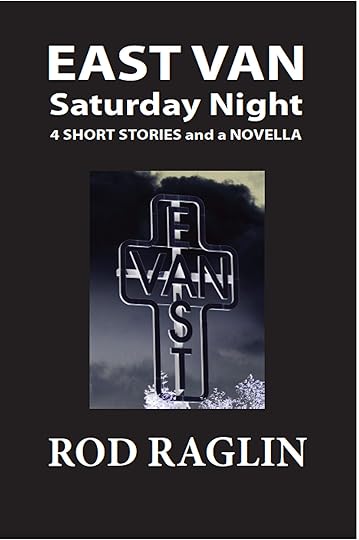
Original post:
rodraglin.booklikes.com/post/1797265/win-a-e-book-edition-of-east-van-saturday-night-on-booklikes
September 14, 2018
Coming of age in East Vancouver during the ’50s and ’60s
[image error]
“Man is least himself when he talks in his own person.
Give him a mask, and he will tell you the truth.”
– Oscar Wilde
East Vancouver has become gentrified and at the same time romanticized. It was neither when I was growing up on East 4th Avenue in ‘50’s and ‘60’s. Indeed, it was the neighbourhood you hoped to get out of rather than move in to.
A low-income, blue-collar neighbourhood, adults spent their evenings and weekends in the Legion while their kids were raised on the street. They left home in the morning, showed up for dinner, and were gone again until “the gun” sounded at 9 p.m. I was one of them.
During the time away adventures were undertaken, friendships were forged, and character was created. East Van Rules was not only meant as a challenge, but also a code to live by.
East Van Saturday Night – Four short stories and novella, highlight coming of age events during that era; a ten-year-old playing for the elementary school softball championship, a teenage tough strutting his stuff at the local dance, a hippie youth hitchhiking across Canada during the Summer of Love.
Watershed moments told from a perspective that explains why you can take the boy out of East Van, but you’ll never take East Van out of the boy.
Now available in E-book or Paperback at
http://www.amazon.com/-/e/B003DS6LEU
Four short stories and a novella depict coming of age in East Vancouver during the ‘50’s and ‘60’s.
“Man is least himself when he talks in his own person.
Give him a mask, and he will tell you the truth.”
– Oscar Wilde
East Vancouver has become gentrified and at the same time romanticized. It was neither when I was growing up on East 4th Avenue in ‘50’s and ‘60’s. Indeed, it was the neighbourhood you hoped to get out of rather than move in to.
A low-income, blue-collar neighbourhood, adults spent their evenings and weekends in the Legion while their kids were raised on the street. They left home in the morning, showed up for dinner, and were gone again until “the gun” sounded at 9 p.m. I was one of them.
During the time away adventures were undertaken, friendships were forged, and character was created. East Van Rules was not only meant as a challenge, but also a code to live by.
East Van Saturday Night – Four short stories and novella, highlight coming of age events during that era; a ten-year-old playing for the elementary school softball championship, a teenage tough strutting his stuff at the local dance, a hippie youth hitchhiking across Canada during the Summer of Love.
Watershed moments told from a perspective that explains why you can take the boy out of East Van, but you’ll never take East Van out of the boy.
Now available in E-book or Paperback at
http://www.amazon.com/-/e/B003DS6LEU
Original post:
rodraglin.booklikes.com/post/1791818/four-short-stories-and-a-novella-depict-coming-of-age-in-east-vancouver-during-the-50-s-and-60-s
September 9, 2018
Enhanced Bublish delivers the same results – none
[image error]
Three months ago, I responded to a free offer from Bublish to use their “e-book Author and Discovery Platform” for two weeks.
Bublish claims they can help you “promote your work and build your brand” with, among other things, “book bubbles,” excerpts of your work shared across social networks. These bubbles also allow you to share “the story behind the story,” similar to a director’s rough cut which Bublish claims “is a powerful way to build social proof with readers.”
I already had a Bublish experience shortly after it was launched a few years ago. I quit using the platform then because despite encouraging numbers regarding bubble views, profile views and conversions there were no sales.
When I logged in I was surprised to see previous bubbles for my novels Forest, and The Big Picture still on the site.
Since I was launching Cold-Blooded, Book 2 of the Mattie Saunders Series, that’s what I began promoting, but after a month, and still having free access to the site, I decided to repost the bubbles from The Big Picture.
Bublish provides a daily update of social metrics for the past 90 days on a member’s dashboard. I’ve just completed my current 90 day run posting almost every day and here are the results:
Bubble Views – 4891; Profile Views – 47; Conversions (which retailers users are visiting from your bubbles) – 161
My use of Bublish did not result in a single sale, and neither did it generate any additional activity such as page views on Smashwords or visits to my author website over the three month period.
Today’s enhanced Bublish costs $99.00 a year or $9.99 a month. For a paid subscription you receive the opportunity to upload unlimited books, an author profile, social metrics, e-pub creator, exclusive programs (deals from their corporate partners) premium resources (tutorials, videos, etc.). You can also sign up as an Emerging Author and upload one book and post unlimited book bubbles free.
With the exception of posting unlimited books on Bublish, you can get everything else Bublish offers from other sites free.
The only benefit I gleaned from Bublish then and now, was condensing scenes into author insights (bubbles). It really hones your focus.
Stay calm, be brave, watch for the signs.
Amazon author page https://www.amazon.com/-/e/B003DS6LEU
Original post:
rodraglin.booklikes.com/post/1790442/enhanced-bublish-delivers-the-same-results-none
August 24, 2018
Harsh judgment for Full Disclosure
Jilly Truitt is a young, ambitious criminal lawyer making a name for herself.
When a wealthy businessman, Vincent Trussardi is accused of murdering his young wife, he reaches out to Truitt to defend him. This will be a high profile case with a significant retainer and Jilly is eager to take it on even though the evidence overwhelmingly suggests her client is guilty.
Full Disclosure is Beverley McLachlin’s first novel after retiring as the longest Chief Justice of the Supreme Court of Canada for seventeen years, the first women to hold that position and the longest-serving Chief Justice in Canadian history.
As a jurist, McLachlin is formidable, as an author she’s just a beginner, and it shows.
There are a number of plot points in the book that stretched this reader’s suspension of disbelief nearly to the breaking point, but I hung in there expecting some insights regarding the Canadian legal system, the professionals involved and those they prosecute or defend.
There weren’t any. In fact, the lack of originality had me wondering if I hadn’t read this before. That isn’t to say I didn’t enjoy it. The story takes place in Vancouver, Canada, my hometown and hers, and it was fun recognizing the restaurants, landmarks and neighbourhoods where the scenes unfold.
Unfortunately, as the novel draws to an end, and with many questions still unanswered, the author (out of desperation?) resorts to the old, tired technique of having her protagonist goad a suspect, Perry Mason style, into confessing. Of course, this confession is taped on a recorder hidden in her pocket and is used to exonerate her client. See what I mean about lack of originality.
Though it didn’t have any real bearing on the novel, I was surprised and disappointed at the author’s treatment of a First Nation person in her story. Though a very minor character, when this young woman is challenged by isolation and unhappiness her choice is to become a drug addict and support her habit by prostitution.
With so many other positive possibilities out there, why did someone of the McLachlin’s stature and presumed sensibilities choose this clichéd depiction of our Indigenous people?
Despite the efforts of the best editors Simon and Schuster employ, I doubt Full Disclosure would have been published had it not been for the author’s significant profile which, like all books written by celebrities, assures at least some sales.
The real test will be McLachlin’s next novel.
Original post:
rodraglin.booklikes.com/post/1785568/harsh-judgment-for-full-disclosure
August 22, 2018
Author as a salesperson
The only way I have been able to sell my books is in person, directly to a potential reader.
When I did the math, I realized that I could order my books, mark them up and sell them cheaper than someone could buy them from Amazon, when you factored in the cost of shipping.
Here’s and example: For me to order a copy of Local Rag costs $4.40 CA, plus $2.43 shipping = $6.83 For anyone else to buy a copy of Local Rag from Amazon Canada costs $13.29, plus $4.98 shipping, plus GST 91¢ = $18.95 The difference is $12.12 (I don’t have to collect the GST because my sales are under $30,000 annually).
My royalty on an Amazon sale is about $2.86. That leaves $9.26 to do what I please with. I can knock $2.00 off the price and still make more than $4.00 more than I get from a sale on Amazon.
About a year ago, I started researching venues where I could sell my books in person. I rejected flea markets and other events unrelated to literature and soon found opportunities to participate in public readings and talks. You speak briefly about your book or a related topic and sell your work after the event while mingling with the audience.
I took it a step further and developed mini-seminars in self-publishing and memoir writing which I conducted free. The audience was very sales friendly. This system worked at book fairs as well, but since the table rental had to be taken into consideration, I had to be a little more aggressive.
In sales, it’s essential to engage the customer, so you have to get out from behind the table and chat up the passers-by. I printed up cheap bookmarks to give away, had them fill out an entry form (don’t forget their email address) for a free draw of some of my books, and talked about the event, even the other authors.
I’ve made a living at direct sales so this is second nature to me, but even so it was exhausting and not a lot of fun.
After six months I had a decision to make. I now had lots of opportunities to speak, teach and sell my books, but I needed to invest in more stock. If I ordered more books, I’d have to get out there and flog them.
I decided I’d had enough.
So what have I learned?
Selling a book is a lot like writing one. There’s no easy way,
and nobody can do it for you.
Too bad.
Stay calm, be brave, watch for the signs.
Amazon Author Page (still the easiest way to sell books)
https://www.amazon.com/-/e/B003DS6LEU

Original post:
rodraglin.booklikes.com/post/1785255/author-as-a-salesperson
August 21, 2018
Promoting your books on discount book sites
[image error]
The internet has a plethora of sites that offer free or deeply discounted e-books to members.
They get their product from authors who are enticed by the opportunity to have a promo template of their book sent free to the site’s membership in hopes that some members will download it, read and review it.
The free offer is a teaser to encourage you to pay for their enhanced list – more members and prolonged exposure.
They also offer a free author interview template. Answer the questions, add your picture and they’ll post it for free.
I discounted Local Rag to 99¢ and submitted it to the four sites listed below, taking advantage of free option only. I work hard to write and produce a decent book and I won’t pay to give it away.
Like so many things that are free, and I suppose that goes for most free e-books, you get what you pay for. I didn’t see a whiff of interest.
I’ve researched a few authors who have documented how much they spent versus how much they made in sales using this approach. They claim to have broken even, but I have my doubts. I’m reminded of my friend who makes frequent trips to Las Vegas. When he wins, I hear about it. When he loses, well, he’s talking back about the time he won.
The other thing I noticed is that their book sales were not sustained. There may have been a blip, but there was not enough reviews, word of mouth, or buzz, in general, to elevate their book from self-publishing oblivion.
Stay calm, be brave, watch for the signs
Discount book sites
My Amazon Book Page in case you want to purchase Local Rag for 99¢ until the end of August
https://www.amazon.com/-/e/B003DS6LEU
Original post:
rodraglin.booklikes.com/post/1784714/promoting-your-books-on-discount-book-sites
July 23, 2018
Profound insights on writing presented with with grace, charm and wit.
Review: 




Ursula Le Guin describes Steering the Craft, A 21st-Century Guide to Sailing the Sea of Story, as “A handbook for storytellers – writers of narrative prose and not for beginners.”
Indeed, it is not a book for beginners as much of what she addresses would be beyond the comprehension of novices. What it does concentrate on are those problems that challenge writers and impede the tone an flow of the narrative.
For example, she asks you to listen to the sound of your writing which involves diction and syntax.
Sophisticated consideration is given to verbs: person and tense, as well as point of view and changing point of view.
Indirection narration or what tells including avoiding expository lumps is discussed in depth.
There’s an excellent chapter entitled Crowding and Leaping which involves the necessity of focusing on some areas while leaping ahead in other parts while still following a fixed trajectory.
Steering the Craft is primarily a workbook with “exercise consciousness-raisers that aim to clarify and intensify your awareness of certain elements of prose writing and certain techniques and modes of storytelling.”
These exercises are challenging but illuminating. I particularly benefitted from one called A Terrible Thing to Do that involved writing a narrative of about 500 words and then cutting it by half still keeping the narrative clear and not replacing specifics by generalities.
The book also includes the best advice I’ve read on running peer group writing workshops.
This slim volume has profound insights on writing and presents them with grace, charm an wit. The goal, according to the author, is to help you develop skills that free you to write want you to write.
Or as Le Guin puts it so that you’re “ready to let the story tell itself; having the skills, knowing the craft so that when the magic boat comes by, you can step into it and guide it where it wants to go, where it ought to go.”

Original post:
rodraglin.booklikes.com/post/1776923/profound-insights-on-writing-presented-with-with-grace-charm-and-wit
June 16, 2018
Book editing – the rise of the machine (and the reduction in cost)
As an independent, self-published author you could spend thousands of dollars to have your book professionally edited, produced and marketed. Despite what you’ve been told it would not guarantee success, in fact, you’d be lucky if you sold enough books to offset the costs.
Knowing this has made me reluctant to pay for these additional services.
Some would argue that’s the reason I’ve had no success. I’m too cheap to pay for the services of professionals to design my covers and edit my manuscripts.
That’s at least partially true, but I maintain the real reason is I’m still not a good enough writer.
I’ve done a lot of stuff to become a better writer, and it’s worked, up to a point. What I need now is someone educated and experienced who knows more about the fundamentals of the craft than I do to make constructive suggestions on how I can move forward.
I need a skilled and credible editor.
With my last three novels, I’ve been fortunate to have three dedicated beta readers who have volunteered to read my manuscripts and found hundreds of typos, spelling mistakes and dropped words. They’ve improved the final product immeasurably and yet even after I incorporate all the corrections I still come across embarrassing errors.
But what’s worse, when preparing The Local Rag, my last full length novel, to submit to a competition, I noticed passages that were awkward and poorly written. They were examples of lazy writing, not digging deep enough, or, not having someone to push me to dig deeper. Someone credible who I trust.
There is a plethora of editing services on the internet from freelancers to large companies that tie in editing with other self-publishing services. For example BookBaby https://www.bookbaby.com/book-editing-services/
Copy editing as defined by BookBaby’s Editing Services site includes “a basic word-by-word edit that addresses grammar, usage, and consistency.”
Line editing according to BB is, “A more intensive structural edit that focuses on the finer aspects of language—the flow of ideas, transition elements, tone, and style,” as well as all the services performed in Copy Editing.
At BookBaby the cost of Copy Editing is $7.00 per page; line editing $10 per page. At 255 pages, it would cost $2250 to have The Local Rag line edited.
To recover that cost, I would have to sell 1,020 copies of the paperback edition or 1607 ebooks.
Well, that isn’t going to happen.
What about a computer program that is inexpensive (preferably free) and would at least eliminate most of the errors that were being missed by my beta readers and repeatedly by me?
ProWritingAid claims to be “your personal writing coach, grammar guru, style editor and writing mentor in one software package.” It also has a free version that allows you to upload articles to a maximum of 500 words.
I tried it and was impressed. I checked out a few others and liked Grammarly as well because it focuses on grammar and punctuation and ease of use.
I experimented by uploading chapters of The Local Rag first into ProWritingAid for style suggestions and mentoring(?) and then taking that version with the changes I made and putting it through Grammarly for one final check for grammar and punctuation.
Not only have these two programs eliminated errors, but ProWritingAid has also prompted me to improve things like passive writing, sticky sentences and shows me where opportunities to show rather than tell.
A year’s subscription to Grammarly cost me USD 139.00. I found 25% off coupon for ProWritingAid to bring my annual fee down to USD 37.50.
I plan to ask my beta readers to comment more on the story, now that they don’t have to worry about what amounts to proofreading. Addressing issues like was the opening compelling, did you find the main character sympathetic, was the dialogue authentic, what parts were boring (bogged down in back-story), what parts were exciting (if any), plot glitches, and overall, how could the story be improved would be illuminating.
Frequently, traditional publishers will release a work of fiction by a famous person. Because of author’s fame in other endeavours and the curiosity factor of the public, it’s a guarantee that the books by these first-time authors will make money. I make a point of reading these books to remind myself that even the best editors, the most creative cover designers, and a full-press marketing campaign complete with a book tour can’t make a bad book good.
The most recent example of a “celebrity book” that all the professional services in the world couldn’t save was Crying for the Moon by Mary Walsh, a comic icon in Canada.
The next one likely one will be Full Disclosure, the first novel, a thriller, by the former Chief Justice of Canada, Beverley McLachlin.
You’d think these authors, who have risen to the top of their profession, might have some insights into areas you and I don’t. Maybe they do. But most are long on hubris and short on writing craft and whatever inside information they have isn’t worth the effort of reading their book.
I’ll find out if this is the case with McLachlin by and by; I’m number 134 on the list to borrow her book from my local library.
This is the long way of saying editing services, online or provided by a real person, without a doubt will improve your writing. But no matter how much you pay them they can’t make a silk purse out of sow’s ear.
I take some consolation in that.
Stay Calm, Be Brave, Watch for the Signs
Website links associated with this blog:
BookBaby Editing Services https://www.bookbaby.com/book-editing-services/
Grammarly: https://www.grammarly.com/
ProWritingAid: https://prowritingaid.com/
Author’s Amazon Page https://www.amazon.com/-/e/B003DS6LEU

Original post:
rodraglin.booklikes.com/post/1766328/book-editing-the-rise-of-the-machine-and-the-reduction-in-cost

